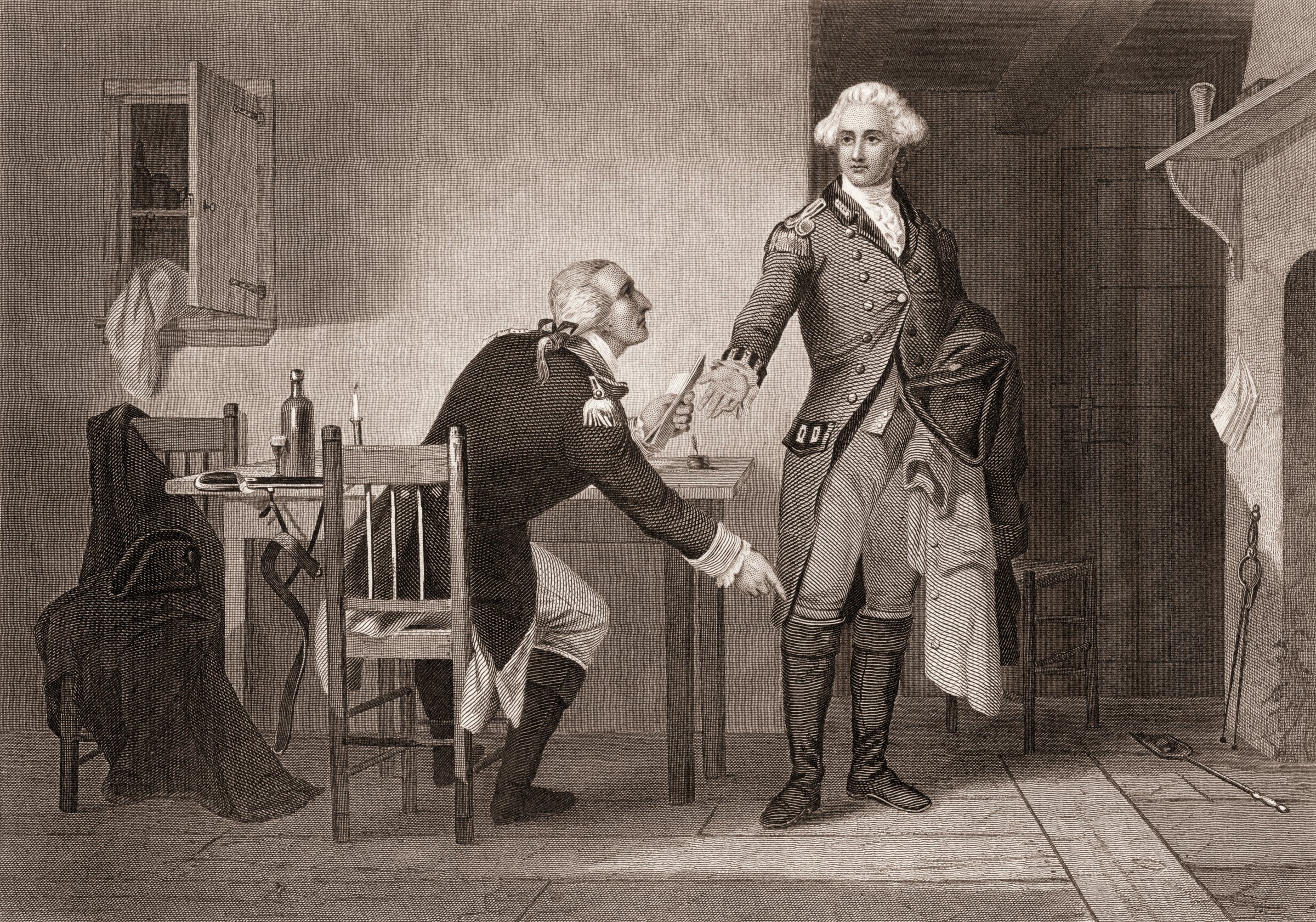
The American Revolution is often painted as a courageous and unstoppable cause, advanced by noble men of pure intent, preordained for success. Benedict Arnold, meanwhile, is seen as such an archetypal traitor that his name has come to be synonymous with treachery.
But as Nathaniel Philbrick illuminates in his new book, that’s only part of the story.
“The fact of the matter is [the Revolution] went on for eight years, and instead of being this God-ordained rush to victory, it was bogged down,” Philbrick told TIME ahead of the publication of Valiant Ambition: George Washington, Benedict Arnold, and the Fate of the American Revolution, out Tuesday. “It seemed as if the American people, who had come together in the Continental Congress and the Declaration of Independence, after five years of war had begun to lose interest. There was all this civil dissension, Americans were fighting Americans, and Congress could not raise money because they had no taxing power.”
Get your history fix in one place: sign up for the weekly TIME History newsletter
In Philbrick’s view, Benedict Arnold’s war story embodies much of what went wrong in the Revolution. America’s most notorious traitor actually began the war a hero, displaying bravery in the Capture of Fort Ticonderoga and the Battle of Quebec, and using his nautical cunning to lead his fleet to safety on Lake Champlain at the Battle of Valcour Island. “He was our best battlefield general,” Philbrick says. “But he was also a controversial character and he wasn’t treated well by the politicians.” Arnold saw his peers promoted ahead of him for political reasons, and after badly injuring his leg at the Battle of Bemis Heights—it ended up two inches shorter—he felt he wasn’t duly rewarded for his sacrifices.
Arnold had a friend in George Washington, but even Washington himself was often out of favor with members of the Continental Congress, whom he answered to—so there wasn’t much he could do to protect Arnold from the slings and arrows of American politics.
“There’s a tremendous tendency to look back on our Founding Fathers and say it was a simpler time when men motivated by the best of values made America,” Philbrick says. “That’s not the way it was at all. It was a lot more like it is today than many Americans would like to admit.”
MORE: The Strange Saga of George Washington’s Bedpan
By the time the war was fully underway, the Continental Congress was not made up of the luminaries who’d written the Declaration of Independence, leaving “second- and third-tier” politicians in charge. And, without the power to levy taxes, they had little power to effectively run he country and fund the war. “We rant and rave about a dysfunctional Congress today,” Philbrick says. “Well, this was a dysfunctional Congress, too.”
So it’s no wonder that Arnold was angry.
His marriage in 1779 to a woman with Loyalist sympathies helped turn anger into treachery. The following year, after going back and forth with contacts inside the British army, Arnold attempted to surrender West Point to the British—a plot that was foiled through a series of blunders and mishaps, and one that made Arnold public enemy no. 1 for the American people.
The real “irony and tragedy” of Arnold’s career, says Philbrick, is that his years of valor on the battlefield didn’t do nearly as much for the Revolution as his treason, which served as a “galvanizing shock.” Suddenly the apathetic masses were rallying once again, united against a common enemy. Short of George Washington, Philbrick says, “No one did more to promote the American cause than Arnold.”
More Must-Reads from TIME
- Donald Trump Is TIME's 2024 Person of the Year
- Why We Chose Trump as Person of the Year
- Is Intermittent Fasting Good or Bad for You?
- The 100 Must-Read Books of 2024
- The 20 Best Christmas TV Episodes
- Column: If Optimism Feels Ridiculous Now, Try Hope
- The Future of Climate Action Is Trade Policy
- Merle Bombardieri Is Helping People Make the Baby Decision
Contact us at letters@time.com